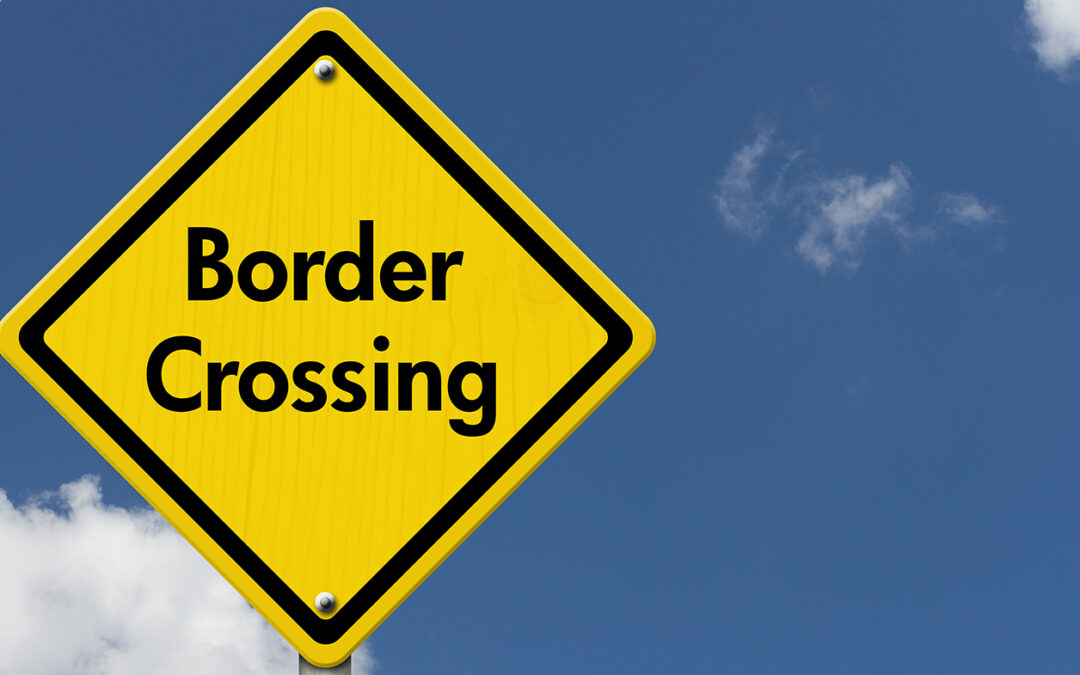If you’re looking to nail your cross-border shipping fulfillment as a business, especially across international borders, here’s what you need to know…
Cross-border international shipping: shipping goods stored in one country to another country.
Shipping items across borders is not a new concept. Countries have exchanged services and goods for ages.
However, shipping business goods can be a tricky process. Trade and shipment regulations are constantly changing. Weather is unpredictable. Politics can even have an effect on your packages.
Even though there are several obstacles, there are various solutions to help you overcome them.
Timing is Everything
Timing is an essential key when it comes to shipping across borders. If you end up mistiming your imports and exports, your packages will end up missing deadlines. Bottom line? You’ll have unhappy customers.
Avoiding this mistake is actually pretty easy. Simply do your research and make sure your shipments match with your freight quotes. Also, keep solid communication with your freight handler.
Penny-Pinching
While shopping for low rates isn’t always a bad idea, you want to make sure your forwarder is worth the price cut. Some companies will offer you an amazingly affordable rate. But, they may also leave you without full service.
Before signing any deal with a forwarding company, do your research. Find reviews from previous customers and get an idea of their reputation. If there are any red flags, it’s time to search for a new company.
Insurance For Peace of Mind
Shipping your goods long-distance means more than taking time. There is an abundance of uncertainties when it’s reaching its destination. Natural disasters, accidental drops, and stolen goods are just a few of the possibilities.
Failure to ensure your packages before shipping could mean substantial losses to your company.
Make sure you understand all the insurance options and the policies they cover. Do heavy research when choosing a provider. Confirm there are no special provisions that would opt them out of covering your products.
Documentation
Commercial invoices, certificates of origin, and brokerage can be intimidating. Make sure your cross-border shipping company can provide support and advice on these.
A commercial invoice is a detailed descriptive list of the shipped goods. It’s usually required to have three copies attached to your shipment.
The NAFTA (North American Free Trade Agreement) Certificate of Origin gives preferential treatment on certain goods. This includes products originating and traveling in the United States, Canada, and Mexico.
If your products qualify, include the CAFTA certificate. Then, you won’t have to pay the duties on the goods you are sending.
You can also use a customs broker to ensure your shipments clear at customs. Having a broker minimizes any risk of penalties. Some systems have the option to use theirs if you don’t have one for yourself.
Customs Clearance
This is one of the main steps when shipping your items across borderlines. Thousands of items continuously travel to and from Mexico and the United States. Regardless, all shipping trucks have to obey customs laws.
When items are coming from Mexico, the security check is even more strict. Shipping trucks have to undergo a series of inspections to ensure there are no illegal items.
Taxes
All products traveling across borders are subject to taxes when they reach customs. Agencies within the government inspect the goods, collect taxes, and approve them.
So the big question is: do you have to deal with import or export taxes?
Typically, United States eCommerce sellers won’t face U.S. export regulations and taxes. However, you may have to pay taxes depending on the receiving country’s regulations.
No matter what, inform your buyers there may be international taxes added per their country’s laws.
Do your research when sending items across borders. Make sure you understand what kind of taxes will be collected and be prepared to pay them.
Localized Fulfillment
Localized fulfillment is something to consider if your international sales are abundant. This means you would store your products in warehouses in the countries you sell to.
This is a fantastic option if your sales skyrocket in specific countries. You don’t have to worry about cross-border customs. You won’t have to deal with any delivery taxes. And, in many cases, it lowers delivery costs and transit time.
Localized fulfillment can be an extremely cost-effective way to handle your international orders.
The Bottom Line on Cross Border Shipping
Cross border shipping to international customers online is not a difficult task. However, getting your products to international customers has its obstacles.
You can handle it in house, or with the aid of a fulfillment partner.
Either way, be sure you do your homework. Know international laws. Understand customs regulations.
When you see your international orders increase, weigh your localized fulfillment options.
If you’re still looking for the right company to fulfill all of your international shipping needs, contact us today for more information on how we can help.
